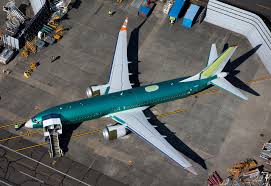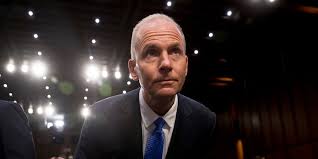The Boeing Scandal and the Demise of a Corporate Culture (Part I of III)

When a company suffers from serious misconduct, the source of such a failure usually lies in its corporate culture. I know this theory sounds relatively obvious, but bear with me here.
The CEO and senior management and the corporate board are responsible for creating, oversight and monitoring of a company’s culture. Corporate boards and senior management work together, communicate regularly and should set an example. Companies can suffer from a corporate culture of neglect or an affirmative culture designed to commit wrongdoing. We have a laundry list of corporate scandals where the company’s culture is committed to wrongdoing (either explicitly or implicitly).
In many cases it is hard to pinpoint to specific culture failure. Board members and senior management often engage in implicit neglect — where actors reasonably know that by ignoring warning signs, avoiding moments to intervene or suggesting that a culture task is someone else’s responsibility, results in a devastating scandal. In these circumstances, the Board and/or senior management may react with calculated surprise to what they reasonably knew in the back of their respective (or collective) minds was the inevitable result of a cultured of neglect. Of course, this is a nuanced issue where evidence may be difficult to assess and conflicting explanations may be proffered, but in the end, the board and senior management have to be held accountable and responsible for the resulting misconduct.

To examine some of these issues in real-life terms, I wanted to focus on the Boeing case. While we do not have access to all the evidence being collected as part of ongoing criminal and civil investigations and litigation against Boeing, there is a considerable amount of information concerning Boeing’s scandal surrounding the 737 Max and its corporate culture.
Boeing has suffered a terrible fall. For years, Boeing was cited as a model of safety and quality production of airplanes. Since suffering two deadly crashes of its 737 Max, which resulted in the death of 346 people, Boeing and the aviation industry now face significant questions concerning its commitment to safety in an obsessive push to preserve profits. At its root, Boeing appeared to develop a culture of arrogance in which its mocked regulators, safety concerns and any commitment to safety.
As a result of government investigations, and continuing disclosures of damning evidence, Boeing is now struggling to right itself as an example of positive corporate culture and commitment to safe air travel. Along the way, Dennis Muilenburg, Boeing’s CEO was forced to resign in December 2019, and more changes are likely to occur.
Since March 2019, Boeing’s 737 Max has been grounded by FAA regulators. Muilenberg’s performance during the crisis was a case study in how NOT to navigate a government enforcement and public relations nightmare. He appeared not to acknowledge any serious problems at Boeing and repeated optimistic pronouncements about returning the 737 Max to the air. He truly was a CEO disconnected from his company.

Despite the firing of Boeing’s CEO, bad news has continued to come out with public release of internal emails and communications revealing much more than a poorly designed 737 Max airplane but a faltering culture. The internal communications confirmed what everyone suspected – Boeing employees suffered from a lack of respect for regulators, customers, and colleagues, and even suggested that Boeing employees were incompetent.















